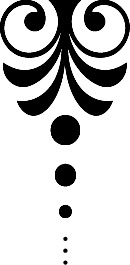
My very first childhood memories are dreams. For me, those images are as powerful as waking-life events that occurred during the same time period, if not more so. The most potent one came when I was just three years old. I dreamed of being in this vast space where I was aware of things above me being unfathomably huge and things below me being inconceivably small—a dream I later recognized as symbolically representing the concept of infinity.
The dream was terrifying to me such that I remember it to this day. Years later, I heard this exact same imagery described by someone else, and I felt a sense of coming full circle. From the time I could perceive my own identity, I was connecting through my dreams with the collective unconscious. Though it would be decades before I even knew what that was, dreams would indeed connect me to myself, to others, and to the world around me as a lifelong passion.
It was as a teenager that I discovered my gifts as a dream interpreter. While at summer camp and later in high school, I noticed that my friends and peers were constantly sharing their dreams with each other. It was not uncommon for a conversation to begin with the frequently expressed notion that “I had the craziest dream last night!” We were—as I would later find that most people are—very motivated to share our dreams with each other in social settings. I inserted myself into the mix as someone who could discern the meaning behind these mysterious nighttime phenomena. But to see why I even opened my mouth, we have to go back a few years to my early childhood.
There was always music playing in my home on the weekends. My mother was fond of playing her records (for the under-thirty crowd, those are really big, black CDs), which exposed me to classical music, folk singers, and a smattering of Broadway show scores, one of which was Fiddler on the Roof. In Fiddler, there is this wonderful sequence in which Tevye tells his wife about a dream he had, and she offers to interpret it. This act of her telling him what his dream means is crucial to the unfolding of the plot. Having heard this recording countless times, I can’t express how strongly that idea was imprinted on my brain. The impact of Tevye’s dream, and more importantly, Golde’s interpretation of it, is a lynchpin on which an important piece of the narrative of the play hinges. Though it was innocuous at the time, listening to this over and over as a child was to be one of the most important experiences of my life.
When I was fifteen, my mother was working toward a master’s degree in social work. I had always been captivated by the books on her shelf. One day I spotted Freud’s Interpretation of Dreams. I pored over it ravenously. As precocious as I was, I don’t imagine that I understood any of the material at such a young age, but I definitely gained one very important piece of information from those pages: a dream is something that comes from the inside of a person’s mind, and by interpreting it, one can gain some information of value.
So when my teenage friends began to mention their dreams when we were out and about, I found myself unable to stifle the impulse to ask to hear about them and offer something in response. I can’t quite imagine what presumptuousness prompted me to make such an outlandish offer, but not being one to hold back my opinions, I did just that. As a result, an amazing thing began to happen. I would listen to the dream and my imagination would ignite. I would then offer some thoughts about what the dream might mean from this imaginative place.
At the time, I had absolutely no idea what I was doing, but from the very start, people responded with curiosity and, more alarmingly, satisfaction. I clearly had a gift and thus began doing this over and over again until, by the time I was in my mid- to late twenties, I had interpreted hundreds of dreams for people. It was not unusual for my phone to ring and the caller to say, “My friend so-and-so tells me that you can tell me what my dream means!” I was hooked.
Over the decades that followed, I continued to dedicate my life and my work to dreams and dream interpretation. I eventually earned a master’s and a doctorate degree in psychology. Interestingly, in grad school, the narrative on dreams and their interpretation was very narrow and extremely clear: We were never, ever to interpret a dream for a client. Instead, we were invited to hold space while the client mused about the meaning of their dreams and the images that populated them. But no matter how I tried to take this approach, I could not help the fact that the moment I heard a dream, I intuitively knew its meaning. I continued to have experiences of sharing my perspective with dreamers, almost always to be met with fascination and delight at the insight I offered.
I knew I was doing something very right, and though my approach was discouraged clinically, I vowed to stay true to my gift. But I also decided I needed to figure out what I was doing during this mysterious experience of interpreting dreams so that I could understand it better and perhaps even share my approach with others and teach them to do the same. The first thing I noticed was that dreams are simply stories. They are told in a language of symbols. The symbols have meaning. That meaning is based on the thing itself: what it does, its use or essence, and the qualities it possesses.
A glass holds some drinking water. Water is crucial for life itself. Therefore, the glass of water represents my personal capacity to draw something to me. A broken glass in a dream symbolizes a hampered capacity to attract what I need to function properly.
Every third grader learns that snakes shed their skin. They grow in a way that is not visible to the outside world until, quite suddenly, they are ready to drop their old skin and a new one is complete and ready beneath it. In this way, snakes represent change and transformation. The dream of coming upon a snake while hiking in the woods now has the meaning that change is upon me. My emotional response to the snake—fear or fascination—may color how I am viewing the change in my waking life that is inspiring the dream itself.
Whenever I heard a dream, it was like I was listening to a story. The dreamer would be describing the dream as a narrative, but I found that that wasn’t really what I was listening to. It seemed that the language of dreams was symbolic, and it was the symbols that I was actually paying attention to. They lined up in my head in such a way that I heard the story as told to me in this language. The process was something I could understand innately, much like I imagine it would be to be bilingual. The act of me verbalizing an interpretation was me translating the symbols back into a story. What I was translating was a story about the story of the dream itself.
The gift that I have isn’t that I know something that other people don’t. We all tap into universal meaning through the collective unconscious. My gift is simply that I can do this very, very fast and therefore repeat to the dreamer what I am responding to immediately upon hearing the dream. We all tap into this innate wisdom when we consider our dreams.
It is not necessary to interpret a dream to get value from it. Truly, you don’t even need to remember a dream in order for it to be doing all sorts of important things for your mental and physical well-being. Of course, dreams are crazy fun to have and remember, so that’s certainly one of the reasons so many people are drawn to them and eager to recall them in detail. Dreams have fascinated humans for thousands of years and doubtless will continue to capture our attention for countless millennia to come.
I have gotten to witness an astonishing number of discoveries about sleeping and dreaming made by scientists in my lifetime. So much has been revealed about the science of sleeping and dreaming that we are closing the gap between what we know and what we don’t know by leaps and bounds. And though science and mysticism are still in a battle for supremacy when it comes to understanding dreams, we still don’t truly know what dreams are and why we have them. If you’re like me, you don’t need to know the answers to those questions to find your dreams compelling and want to understand them more deeply. If having a richer, more vibrant experience of your dreams sounds good, then this book is for you.

